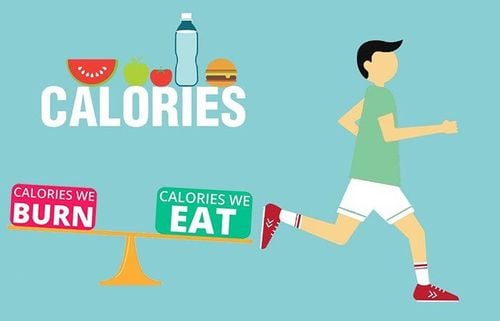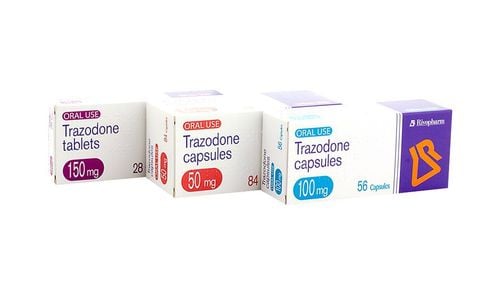Many people think that when the body is in a state of sleep, it will not burn calories, but this is not true. When sleeping, the body still burns calories, the amount of calories you burn at this time will be related to many different factors, including weight, metabolism and sleep time each night.
1. Calories burned during sleep
On average, a person weighing 56 kg will be able to burn about 38 calories per hour while sleeping. This number may not be much, but this is the simplest way to burn calories.
The average sleep time recommended by experts is between 7 and 9 hours per night. The total amount of calories burned each night is about 266 to 342 calories. When sleeping, the amount of calories burned increases with body weight. Therefore, a person weighing 68 kg can burn 46 calories per hour or from 322 to 414 calories per night. And a person weighing 83kg, can burn about 56 calories or between 392 and 504 calories for a full night's sleep.
How do calories burn or how are these numbers calculated exactly? That can be found in all matters of the body's metabolism. Metabolism is recognized as the process by which the body converts food into energy to use for daily activities. Even keeping your organs working, breathing and circulating blood costs the body calories. On the other hand, the basal metabolic rate (BMR) represents the number of calories you burn a day when you are resting or when you are sedentary. This includes sleeping and sitting.
To calculate your BMR, you use an equation that includes factors such as gender, weight and age using cm for height and kg for weight.
- For men: BMR = 66 + (6.2 x 0.45 x weight) + (12.7 x 30.5 x height) - (6.76 x age)
- For women: BMR = 655.1 + (4.35 x 0.45 x weight) + (4.7 x 30.5 x height) - (4.7 x age)
The heavier your body, the more calories you burn at rest and during other activities. Men tend to burn more calories at rest than women of the same weight. This is because men tend to have more muscle mass. Muscle burns more calories at rest than fat.

2. Factors That Affect Calories Burned
A recent study found that if you don't get a full night's sleep, you can burn an extra 135 calories during that time. Some participants burned an extra 160 calories. But before you do, understand that skipping sleep isn't a great way to lose weight.
Long-term sleep deprivation can contribute to weight gain and obesity. Sleep deprivation also increases levels of certain hormones in the body, like cortisol. This hormone makes you store more fat. Not only that, it can also increase your appetite and lead to a slower metabolism. Activities that help you burn more calories while you sleep include taking steps to boost your metabolism. Boosting your metabolism will also help you burn more calories during your waking hours. Here are some things to keep in mind:
- Eating late at night does not slow down your body's metabolism. Therefore, you should not worry too much about eating after 8 pm affecting your body's metabolism. Food consumed after this time does not make you gain weight miraculously, it is due to the habit of snacking without thinking.
- Daily exercise and endurance training is recommended. Because when your body has more muscle, it will help the process of burning calories better, even when you are sleeping. Therefore, you should choose an exercise to practice every day, especially for endurance training. If you have trouble stabilizing your body at night, try exercising a few hours before going to bed.
- Losing weight can also help increase your body's metabolism. Fat burns fewer calories when the muscles in your body are at rest. If you are overweight, consider making an appointment with a dietitian to discuss healthy goals and a plan for achieving them.
- Caffeine may be one of the factors that can increase your metabolism. At the same time, caffeine has not been shown to help with long-term weight loss. Drinking caffeinated beverages before bed may make it harder to fall asleep.
- Supplements that are said to increase your metabolism should be used with caution. Some supplements may contain ingredients that are not safe. They may not even work. Always discuss any supplements you are considering with your doctor.
- Having one of the following medical conditions: Cushing's syndrome and hypothyroidism, can slow down your metabolism. This means you will burn fewer calories and may even maintain or gain weight. Your doctor may also perform simple tests, such as blood tests, to rule out certain conditions. Then, your healthcare team will work with you to help you better manage your condition and weight.
Your body is active at all hours of the day and night. Although you burn calories while you sleep, it is not a surefire weight-loss strategy. Regular exercise and eating well can be helpful and effective for long-term weight loss.

Experts recommend 75 minutes of vigorous activity, such as jogging, or 150 minutes of moderate activity, such as walking each week. And try to do it by shopping around the perimeter of the grocery store for whole foods that are free of empty calories, such as added sugars. Also, try to get 7 to 9 hours of sleep each night. If you have trouble sleeping, try these tips:
- Get into a routine of going to bed at the same time every night and waking up at the same time every day. You can also do some relaxing activities to help you fall asleep more easily, such as taking a bath or doing some gentle yoga before lying on your side.
- Limit noise with earplugs, blackout curtains, and other tools to block out distractions in your sleep space. Keeping your room temperature cool can also help you fall asleep faster.
- Avoid stimulants like nicotine and caffeine in the hours before bed. They can take a while to settle in and make it harder to fall asleep. Although alcohol makes you sleepy, it can also disrupt your sleep throughout the night.
- Turn off your cell phone, computer, TV, and other electronic devices before bed. The light emitted from electronic devices can disrupt your body's natural sleep rhythm.
Limit naps to 30 minutes. Sleeping more during the day can make it harder to fall asleep at night.
In short, sleeping is a simple way to burn calories, not only that, maintaining a good night's sleep will help your body stay healthy and full of energy the next day. Therefore, balancing your diet and maintaining a healthy lifestyle is what you need to do and aim for every day.
To arrange an appointment, please call HOTLINE or make your reservation directly HERE. You may also download the MyVinmec app to schedule appointments faster and manage your reservations more conveniently.
Reference source: healthline.com
To arrange an appointment, please call HOTLINE or make your reservation directly HERE. You may also download the MyVinmec app to schedule appointments faster and manage your reservations more conveniently.








